Recital Igor Levit♪, the 27.
Don Giovanni♪, W. A. Mozart, the 28.
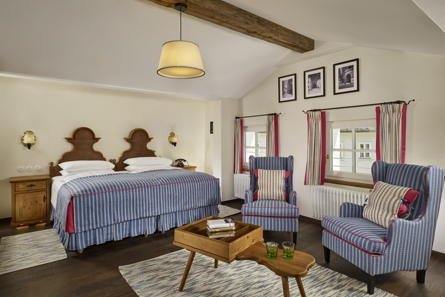
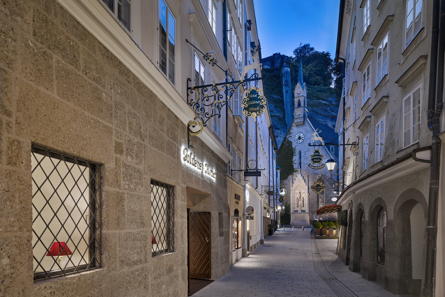
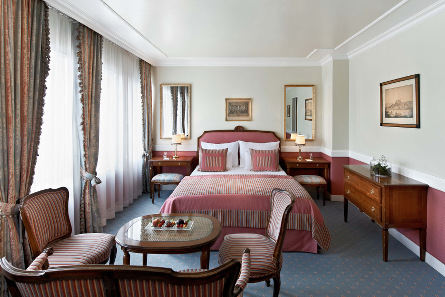
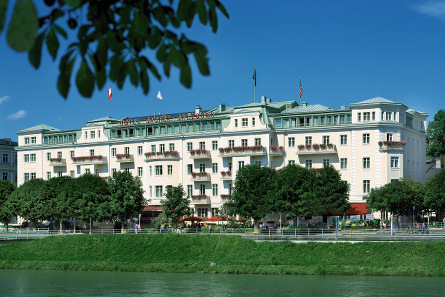
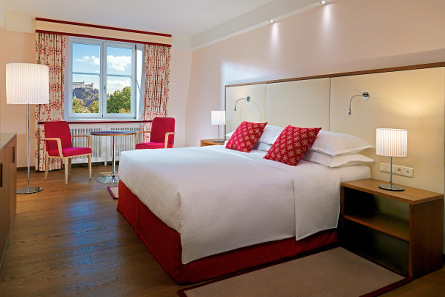
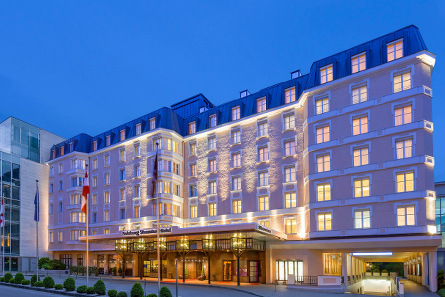
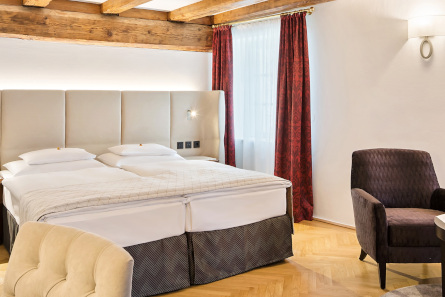
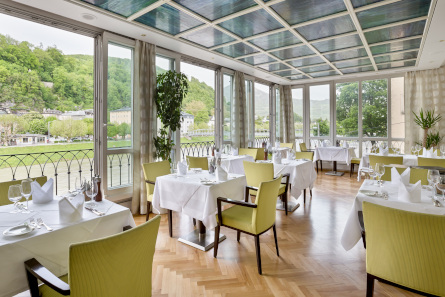

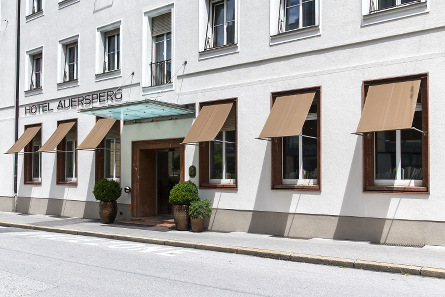
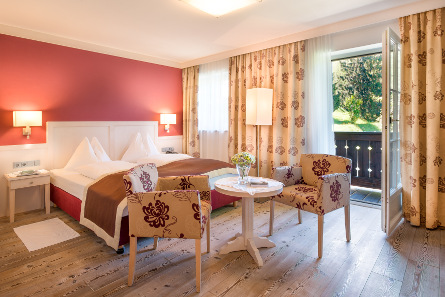
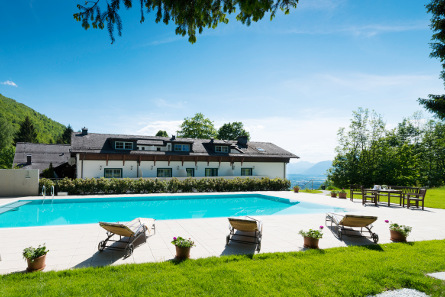
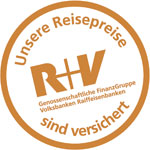
from Thursday 25 to Monday 29 July 2024,
4 nights
Arrangement 11
Arrangement 11
Capriccio, R. Strauss, the 26.
Christian Thielemann♪
Christian Thielemann
Christian Thielemann has been one of the great German conductors of our time for years. Born in 1959 in what was then West Berlin, he began his professional career in his native city at the Deutsche Oper under none other than Herbert von Karajan (1908-1989). Via various stations in Karlsruhe and Düsseldorf, among others, he moved to Nuremberg in 1988 as - at that time - the youngest General Music Director. Nine years later, Thielemann returned to Berlin to the Deutsche Oper, then led the Munich Philharmonic from 2004 to 2011, in each case also in the positions of general music director. Thielemann has been involved with the Bayreuth Festival since 2010. In 2015, he was appointed music director there. In the 2012/13 season, he moved to Dresden to join the Sächsische Staatskapelle, and in 2013 he additionally took on the position of artistic director at the Salzburg Easter Festival. Christian Thielemann maintains close ties with the Berlin and Vienna Philharmonic Orchestras.
Thielemann has received numerous awards and honors for his achievements, including his honorary doctorate from the Hochschule für Musik ´Franz Liszt` Weimar, the Richard Wagner Prize, the Prize of the Foundation for the Promotion of the Semper Opera, and honorary membership of the Royal Academy of Music in London and the Gustav Mahler Association Hamburg.
Thielemann has received numerous awards and honors for his achievements, including his honorary doctorate from the Hochschule für Musik ´Franz Liszt` Weimar, the Richard Wagner Prize, the Prize of the Foundation for the Promotion of the Semper Opera, and honorary membership of the Royal Academy of Music in London and the Gustav Mahler Association Hamburg.
Elsa Dreisig, Eve-Maud Hubeaux, Sebastian Kohlhepp, Konstantin Krimmel, Mika Kares, Bo Skovhus
Großes Festspielhaus
Concert du Mozarteum Orchester, the 27.
Adam Fischer
Klavier: Lukas Sternath
Mozarteum
Recital Igor Levit
Born in Russia in 1987 and raised in Germany, Igor Levit studied piano at the Hochschule für Musik, Theater und Medien in Hanover and now lives in Berlin. The master pianist focuses primarily on Beethoven’s works, both on stage and in his CD recordings - his highly acclaimed recording of Beethoven’s complete 32 piano sonatas is the most recent proof of this.
Levit performs worldwide with renowned orchestras such as the Berlin Philharmonic, London Symphony Orchestra, Leipzig Gewandhaus Orchestra, New York Philharmonic and Vienna Philharmonic, in addition to his solo recitals.
In 2019, Levit accepted a professorship for piano at his former training center in Hanover in order to pass on his experience to the next generation of artists.
For his socio-political commitment, Igor Levit was awarded the International Beethoven Prize in 2019 and the Federal Cross of Merit by German President Steinmeier in 2020.
Levit performs worldwide with renowned orchestras such as the Berlin Philharmonic, London Symphony Orchestra, Leipzig Gewandhaus Orchestra, New York Philharmonic and Vienna Philharmonic, in addition to his solo recitals.
In 2019, Levit accepted a professorship for piano at his former training center in Hanover in order to pass on his experience to the next generation of artists.
For his socio-political commitment, Igor Levit was awarded the International Beethoven Prize in 2019 and the Federal Cross of Merit by German President Steinmeier in 2020.
Großes Festspielhaus
Concert of the Wiener Philharmoniker, the 28.
Herbert Blomstedt
Solist: Christina Landshamer, Elsa Benoit, Tilman Lichdi
Großes Festspielhaus
Don Giovanni
W. A. Mozart
W. A. Mozart
The myth of the seducer of women Don Juan (or in this case Don Giovanni) belongs to the world history of literature. This type of man is regarded as the personification of the instinctive libertine who disregards both the social order and divine laws and who ultimately despises the women whom he oppresses countlessly and arbitrarily.
W. A. Mozart’s (1756-1791) ingenious librettist Lorenzo da Ponte was also taken with this demonic figure of the eternal seducer, to whom the composer left the choice of the theme. After the triumphant success of “Le nozze di Figaro”, he was to write a new opera for the usual fee of one hundred ducats at the imperial request. Mozart’s entire creative power flowed into “Don Giovanni” and left the world of opera with music of supernatural beauty, alternating between cheerful opera buffa and great tragedy. They are striking for their rapid changes and sharp contrasts: sweet love arias alternate with dark passages that emanate a sense of death. In addition to the lascivious figure of the protagonist Don Giovanni and the comic figure of his servant Leporello, the two female characters Donna Anna and Donna Elvira symbolize great humanity, while the commander, who finally dissolves the drama, symbolizes the higher forces.
Through the unique fusion of these highly inhomogeneous elements, Mozart’s masterpiece is rightly considered one of the most perfect operas ever. Entertaining side note: Giacomo Casanova, Italian gallant and bon vivant par excellence, attended the premiere in Prague in 1787.
W. A. Mozart’s (1756-1791) ingenious librettist Lorenzo da Ponte was also taken with this demonic figure of the eternal seducer, to whom the composer left the choice of the theme. After the triumphant success of “Le nozze di Figaro”, he was to write a new opera for the usual fee of one hundred ducats at the imperial request. Mozart’s entire creative power flowed into “Don Giovanni” and left the world of opera with music of supernatural beauty, alternating between cheerful opera buffa and great tragedy. They are striking for their rapid changes and sharp contrasts: sweet love arias alternate with dark passages that emanate a sense of death. In addition to the lascivious figure of the protagonist Don Giovanni and the comic figure of his servant Leporello, the two female characters Donna Anna and Donna Elvira symbolize great humanity, while the commander, who finally dissolves the drama, symbolizes the higher forces.
Through the unique fusion of these highly inhomogeneous elements, Mozart’s masterpiece is rightly considered one of the most perfect operas ever. Entertaining side note: Giacomo Casanova, Italian gallant and bon vivant par excellence, attended the premiere in Prague in 1787.
Teodor Currentzis - Romeo Castellucci
Nadezhda Pavlova, Federica Lombardi, Anna El-Khashem, Davide Luciano, Kyle Ketelsen, Julian Prégardien
Großes Festspielhaus
Hotel informations for Salzburg 11


Goldener Hirsch *****
The Goldener Hirsch *****, considered the best hotel of the town, offers 69 rooms and two restaurants of typical Austrian charm. The traditional furniture is perfectly combined with modern equipments. This luxurious establishment has an excellent location in the heart of the old town of Salzburg, facing the Festspielhaus and fifteen minutes walk from the Mozarteum.


Sacher Salzburg *****
The Sacher Salzburg *****, member of the Leading Hotels of the World, is an internationally renowned hotel where you will appreciate its 111 tastefully decorated, comfortable and elegant rooms. As well as its excellent restaurant, the hotel provides a café where you can enjoy the famous chocolate cake named after its creator. The hotel stands on the banks of the Salzach river with a view of the old town and it is only a fifteen minutes walk from the Festspielhaus and five minutes walk from the Mozarteum.


Sheraton Grand Salzburg *****
The Sheraton Salzburg ***** is ideally located in the town centre and is adjacent to the beautiful Thermal park and to the Mirabell garden. This hotel of 168 rooms is only twenty minutes on foot from the Festspielhaus and five minutes from the Mozarteum.


Altstadt Hotel Radisson Blu *****
The Altstadt Radisson Blu Hotel *****, is situated in the old town. It has 60 single and personalized rooms which are equipped with classical furniture and marble bathrooms. You’ll appreciate its atmosphere and its quiet location on a pedestrianized street, 10 minutes away from the Festival Palace. Its Symphony Restaurant offers Austrian and international dishes with a view of the river Salzach river.


Auersperg ****
Under family ownership for three generations, this small but charming city hotel is located in the quiet but central heart of Salzburg. A young dedicated team from all over the world is responsible for the modern impression, excellent service and the incomparable family atmosphere of this hotel.


Die Gersberg Alm ****
No hustle and bustle, no noise, but fresh air and idyllic nature - that’s what you’ll find at the Romantik Hotel Die Gersberg Alm near Salzburg, which is run very personally and which you can look down on from the hotel’s own garden. The 4-star hotel has 40 individual and lovingly furnished rooms, some with balconies. In addition, there are two cosy restaurant rooms with fine Austrian cuisine, which will pamper you (with a small menu) even after the evening performances. When the weather is fine, the sunny terrace invites you to linger. Before the performances you can relax wonderfully at the pool or with a book in the garden.
The city centre of Salzburg can be reached in about 15 minutes by car. We will be happy to reserve your private festival transfers for you on request.
The city centre of Salzburg can be reached in about 15 minutes by car. We will be happy to reserve your private festival transfers for you on request.
All-inclusive price per person for Salzburg 11
Single room/ night
Goldener Hirsch
4.990,- Euro
60-390,- Euro
Sacher Salzburg
5.490,- Euro
100-330,- Euro
Sheraton Grand Salzburg
4.270,- Euro
90-240,- Euro
Altstadt Hotel Radisson Blu
On request
150-290,- Euro
Auersperg
On request
Auf Anfrage
Die Gersberg Alm
3.330,- Euro
120-150,- Euro

The price includes
Overnights including breakfast, good opera tickets, sponsoring fees, travel cancellation expenses insurance.





